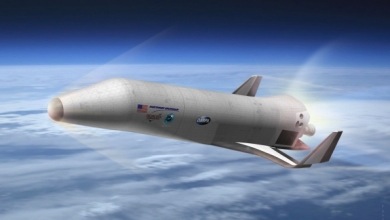Canada Defense Department Loses F-35 Procurement Authority After Audit
Canada’s proposed purchase of the F-35 Joint Strike Fighter has been thrown into turmoil after the government’s auditor found Department of National Defence (DND) officials withheld key information from Parliament about the fighter jet, underestimated costs and didn‟t follow proper procurement rules.
In response to the April 3 auditor’s report, the Canadian government has capped its funding for the F-35 project and, in an unprecedented move, will take the procurement out of the hands of the DND.
Conservative Party Prime Minister Stephen Harper said on April 4 that Canada has not signed any contract to purchase the F-35, and that more oversight of the acquisition will be done before any such decision.
“The auditor-general has identified a need for greater independence and supervision over some of the activities of the Department of National Defence,” Harper said. “The government will put that supervision in place before we proceed.”
The government will create a new F-35 secretariat, which will assume control of the proposed purchase of the next-generation fighter jet for the Canadian Forces.
Prior to any purchase, the government also will commission an independent report of the F-35 acquisition and costs.
The funding envelope for the purchase of 65 F-35s also will be capped at 9 billion Canadian dollars ($8.9 billion), ensuring that additional defense dollars will not be funneled to the project if the cost of the aircraft continues to climb. That funding envelope includes the acquisition of associated weapons, infrastructure, initial spares and training simulators.
“Funding will remain frozen and Canada will not purchase new aircraft until further due diligence, oversight and transparency is applied to the process of replacing the Canadian Forces‟ aging CF-18 fleet,” Public Works Minister Rona Ambrose said in a statement.
The government, however, has rejected demands from opposition ministers that Defence Minister Peter MacKay resign on the grounds his department misled Parliament on the F-35 purchase.
The report, “Replacing Canada’s Fighter Jets,” written by Auditor General Michael Ferguson, found that the DND kept the government in the dark on the proposed purchase of 65 F-35s.
“Problems relating to the development of the F-35 were not fully communicated to decision makers, and risks presented to decision makers did not reflect the problems the JSF program was experiencing at the time,” Ferguson wrote.
Full life-cycle costs were understated and other costs were not provided to parliamentarians, he added. DND officials knew F-35 costs were likely to increase, but did not inform the government, according to the report.
Ferguson also found that although the DND told Parliament’s budget officer in 2011 that the F-35 purchase, including long-term maintenance and support, would cost 14.7 billion Canadian dollars the year before, it had quietly estimated the actual price tag to be 25 billion.
In addition, key decisions were made without approvals or proper documentation, and the DND “did not exercise due diligence” in the proposed acquisition.
F-35 manufacturer Lockheed Martin issued a statement saying “it fully supports the government of Canada‟s response to the auditor general‟s report. We continue to look forward to supporting the government of Canada as they work to provide the Royal Canadian Air Force a fifth-generation fighter capability.”
The Canadian government‟s proposed purchase of the F-35 has fueled political controversy since it was announced in the summer of 2010, with opposition MPs attacking the deal as too expensive.
Canada flies 78 modernized CF-18 fighter aircraft. The F-35A, the conventional-takeoff-and-landing version of the plane, is the replacement.
For years, there has been strong support for an F-35 purchase within the Canadian Air Force. In May 2006, Canada‟s chief of the Air Staff completed an options analysis study that examined the future global market for next-generation tactical fighter aircraft.
“The results of this study have indicated that the JSF family of aircraft provides the best available operational capabilities to meet Canadian operational requirements, while providing the longest service life and the lowest per aircraft cost of all options considered,” according to a Sept. 19, 2006, briefing report.
The two-page report was prepared for the Defence Minister Gordon O’Connor by the Office of the Assistant Deputy Minister for Materiel.
Defense News By DAVID PUGLIESE


